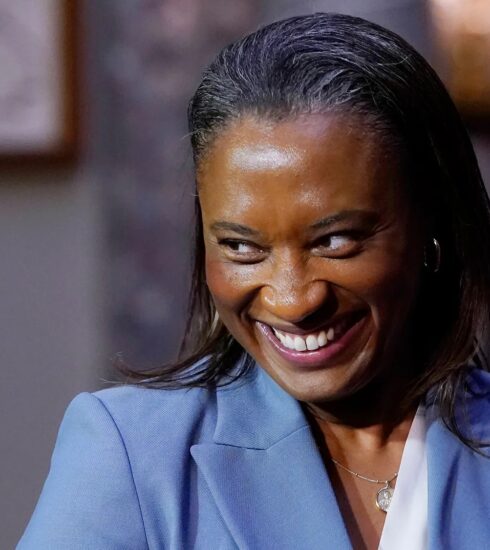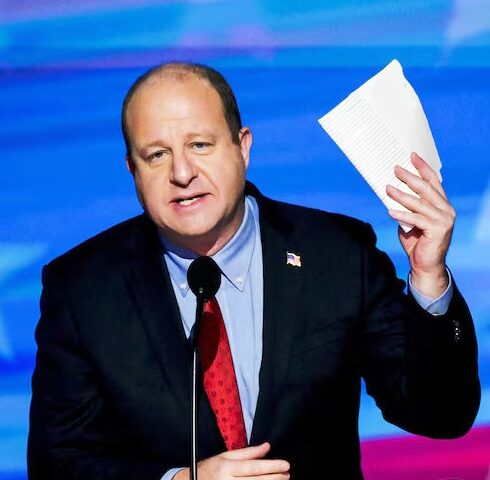These days, it seems the U.S. President Joe Biden’s long lists of missteps keep piling up faster than an express train. The Biden administration has been so focused and hell bent on wiping out student loans that it’s forgotten about one of its core responsibilities – helping students secure the financial aid needed to pay for college in the first place.
Over the past three years, Biden and the Department of Education have had plenty of time on their hands to implement an overhaul to federal financial aid and the headache-inducing form college applicants must fill out to receive assistance: the Free Application for Federal Student Aid (FAFSA).
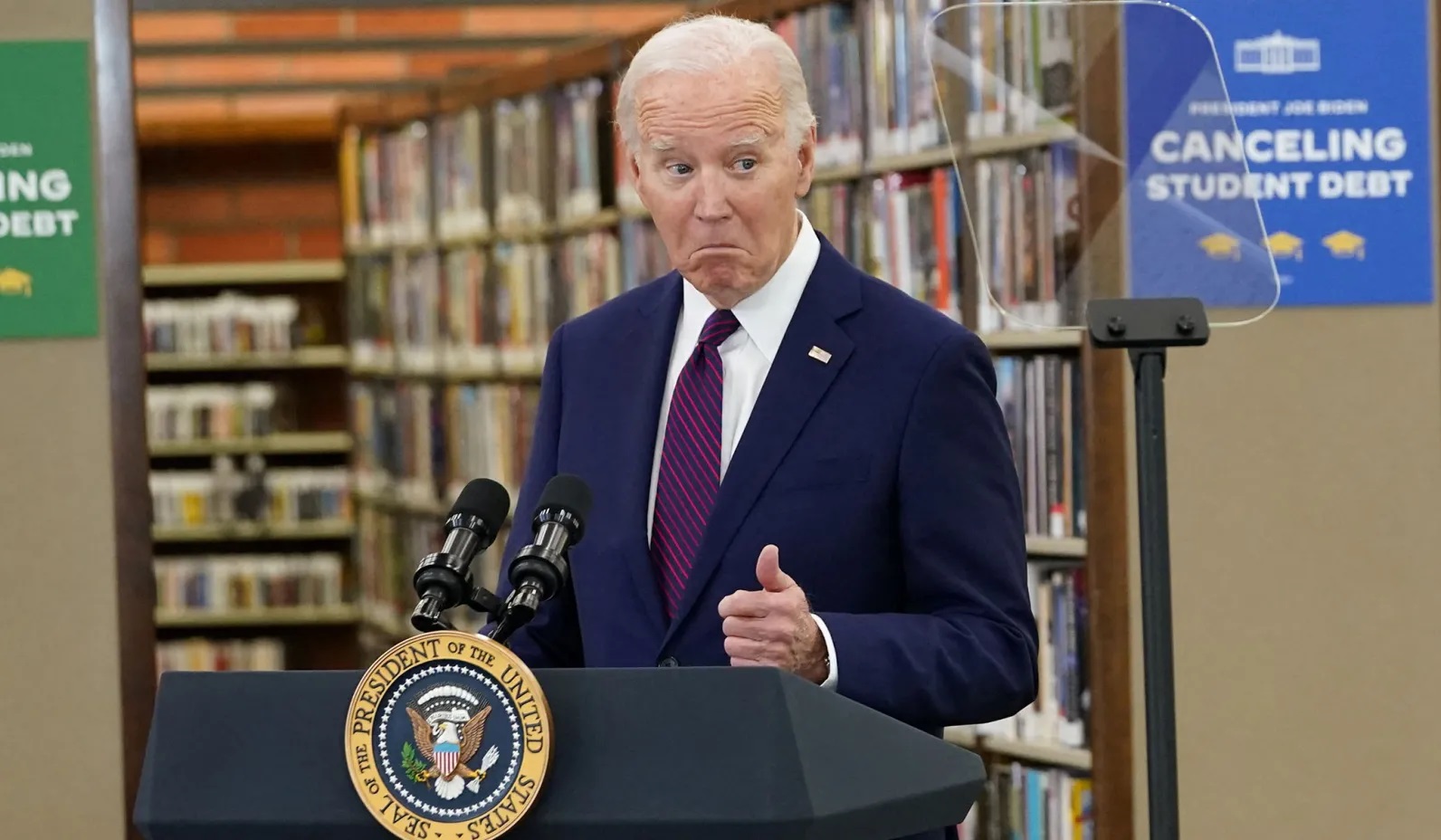
President Joe Biden reacts while he delivers remarks at an event at Culver City Julian Dixon Library, in Culver City, Calif., February 21, 2024. Biden has come under severe criticism for his handling of the student debt crisis and college funding for Americans. Credit:Reuters
Since its soft launch in late December, the new Free Application for Federal Student Aid – which is used to determine college students’ eligibility to receive financial aid – has been plagued with delays and challenges, including glitches and technical errors for students and parents trying to fill out the online form.
The U.S. Department of Education announced another delay this week after it had to update the tables used in the student aid index – which replaced the expected family contribution – to account for inflation. The department originally failed to make that update on the new form, which was required in the bipartisan FAFSA Simplification Act of 2020 that led to an overhaul of the application.
As a result, colleges won’t begin receiving students’ financial information until March, the Education Department announced Tuesday. College admissions and financial aid offices, as well as many students and their parents, were already anxious when it was announced in 2023 that the new FAFSA would open in December, significantly later than the usual Oct. 1 date, and that colleges wouldn’t begin receiving student financial information until later in January.
Delays in opening the FAFSA cause a domino effect: delays in millions of students and parents filing it, delays in processing it and sending students’ financial information to colleges, delays in colleges creating financial award packages and delays in students receiving award letters and deciding where or even if they will attend college.
In late 2020, Congress passed bipartisan legislation (signed by former President Donald Trump) that required the changes to simplify the complex FAFSA form.
Unfortunately, Biden’s rollout of this “supposed simpler” process has been a complete disaster.
The Biden administration’s bungling has led the Government Accountability Office to open an investigation into what’s gone wrong.
Congressional Republicans and Democrats alike have voiced their displeasure with the new FAFSA rollout.
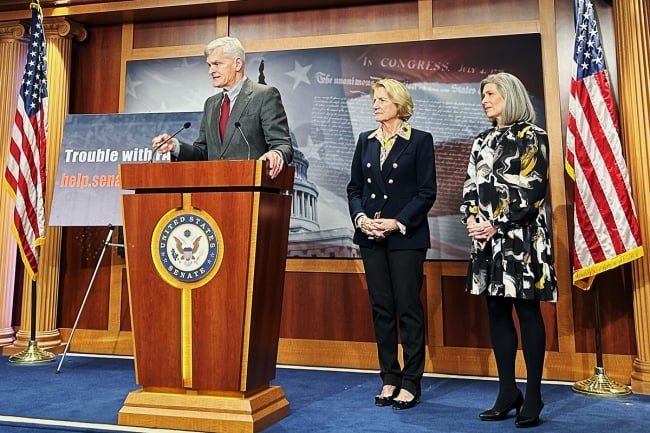
Leading Senate Republicans (from left, Dr. Bill Cassidy of Louisiana, Shelley Moore Capito of West Virginia and Joni Ernst of Iowa) said the Biden administration neglected to follow the federal law requiring changes to the federal student aid application. Credit:Katherine Knott/Inside Higher Ed
Senate Democrats have said that “operational glitches and delays in the rollout of this new version of the FAFSA form has left students and colleges in limbo and locked many families out of the process altogether.”
Another huge concern. Students of color and those from low-income families are facing the largest obstacles created by the Biden administration’s blunder.
That’s probably the implication that a lot of people are concerned about – the marginal students who will be discouraged from enrolling, and it can change their life trajectory in a pretty big way.”
As a result of the ongoing delays, school leaders and higher education organizations have begun calling for colleges to implement flexible deadlines this year and reconsider the annual May 1 national “College Decision Day.”
During the pandemic, many institutions extended their enrollment, scholarship, and financial aid deadlines beyond the traditional May 1 date, and a coalition of nine higher ed organizations wrote in a joint public statement, urging institutions to make similar accommodations this year.
Widener University in Pennsylvania, for example, is among the first to announce that it will not adhere to the May 1 deadline, which is when prospective students applying in the regular admissions process put a deposit down on a school.
For most institutions, (the processing delays are) going to put them in a position where giving financial aid offers out to students is really something that’s going to take place throughout the month of April and beyond, which will most definitely be creating considerable pressures and challenges for families as they make really consequential decisions for their children.
The impact of the delays is really most pronounced for vulnerable students, students who have need-based aid, students from low-income families or under-served schools. At this point, it’s glaring to see that it really has a potential to harm the vulnerable members of the community.
Perhaps Biden should have spent less time the past few years obsessed with student loan cancellation (which was never sanctioned by Congress) and more time putting in place the new financial aid and FAFSA changes (that did come from Congress).
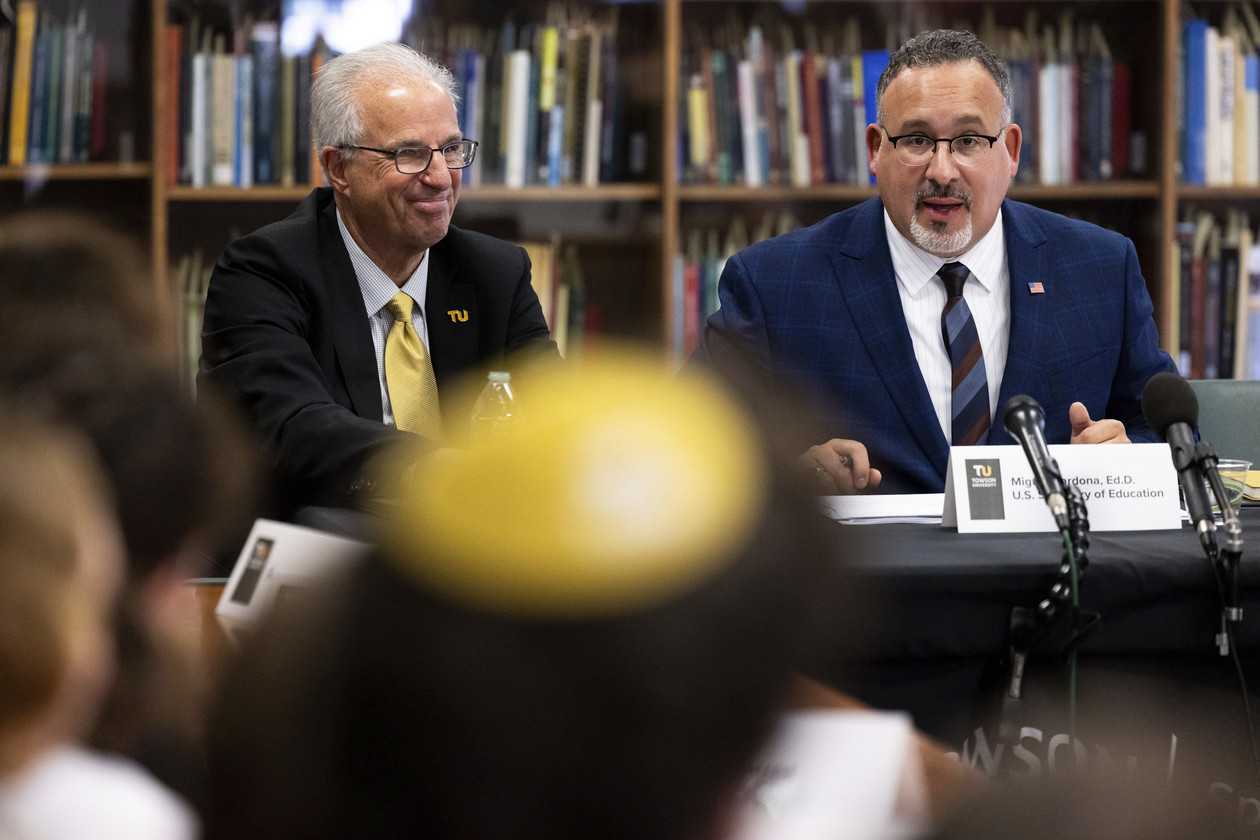
Education Secretary Miguel Cardona (right) meets with students during a visit to Towson University to discuss antisemitism on college campuses on Nov. 2, 2023, in Towson, Md. Cardona has been on the receiving end of some scathing remarks from the GOP, with some calling for his resignation. Credit:Julia Nikhinson/AP
During his term, Biden has plowed ahead to fulfill campaign promises of debt “forgiveness” that some say he didn’t really have the authority to achieve.
Biden’s first big loan cancellation program was ruled unconstitutional by the U.S. Supreme Court last year. That didn’t stop him, however. He has continued to do essentially the same thing but through different means that will be harder to challenge in court.
At a news conference early this year, a group of Senate Republicans discussed their frustrations with the form’s turbulent rollout and suggested that the Education Department had wrongly devoted more time and resources to President Biden’s controversial federal student loan forgiveness plan than to ensuring that the new FAFSA was rolled out smoothly.
The biggest concern right now is for those high school students who are just now attending college for the first time who have not been through this before. Many students will likely forgo college because they do not know if they can afford it.
In an election year, it seems the Biden administration is already swimming against the tide. How this will hurt Biden’s chances of re-election when all indications point he’s struggling badly remains to be seen.



